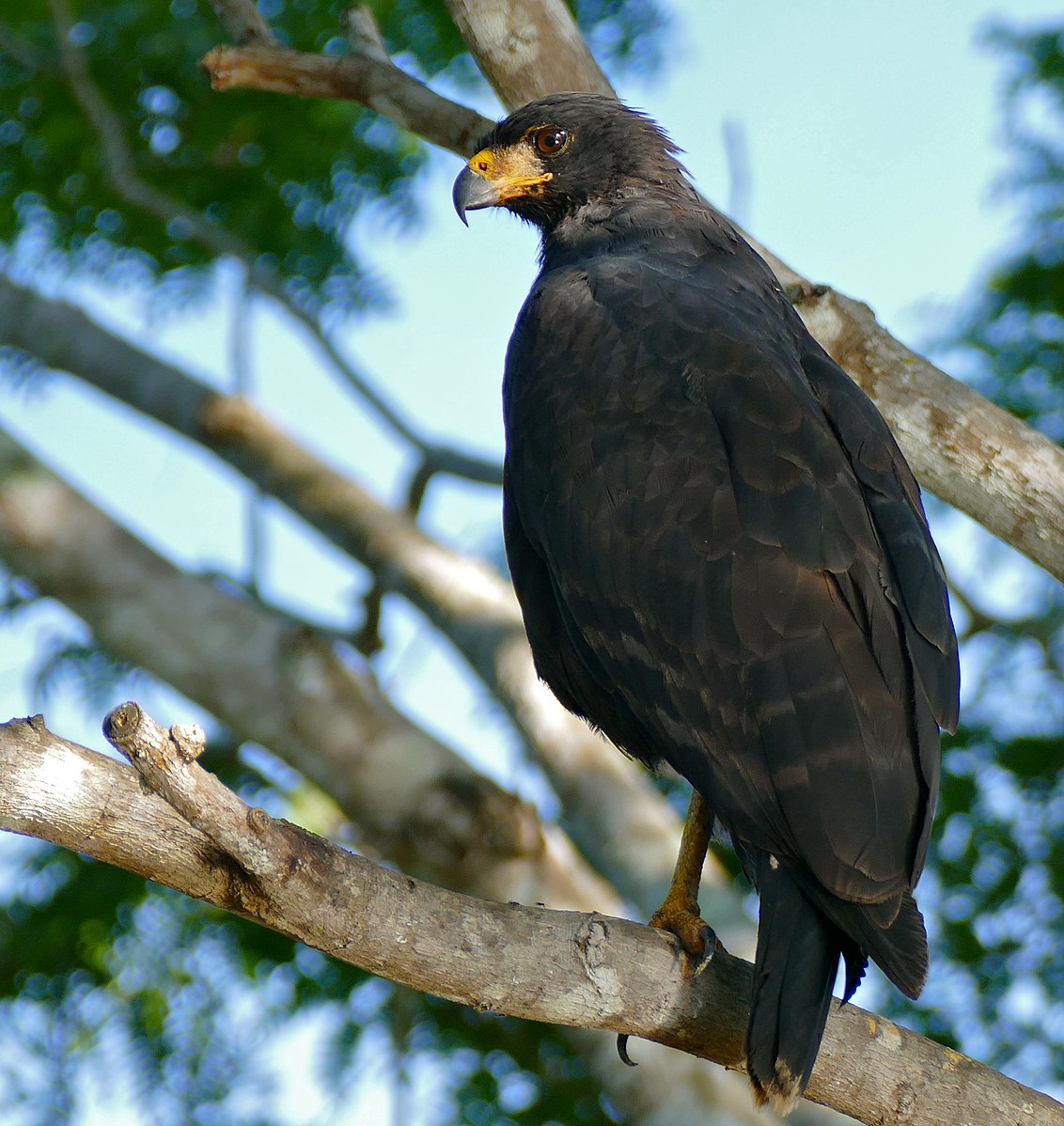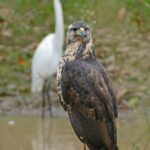Great black hawks, like most birds, have a limited sense of smell. While some scientists believe that hawks may have some olfactory ability, it is not as well-developed as in other animals. For example, a juvenile red-tailed hawk was observed perched on the vent stack of an extremely foul-smelling outhouse, seemingly unbothered by the stench. This suggests that if great black hawks do have a sense of smell, it is not as sensitive as that of many mammals.
The Sense of Smell in Great Black Hawks
Birds, in general, rely more heavily on their sense of sight and hearing than on their sense of smell. Hawks, in particular, have excellent vision and can see details and colors that are invisible to humans. They also have sharp hearing, with ears located on the sides of their heads and specialized adaptations for detecting the direction and distance of sounds.
Olfactory Abilities of Great Black Hawks
While some studies have suggested that great black hawks may have a limited sense of smell, the extent of their olfactory abilities is not well-understood. Some researchers believe that hawks may be able to detect certain scents, such as the odor of their prey or the presence of predators, but this ability is likely not as acute as in many mammals.
Factors Affecting Olfactory Perception in Great Black Hawks
Several factors may influence the olfactory perception of great black hawks, including:
-
Habitat and Prey: The specific habitat and prey of a great black hawk may play a role in the development of its sense of smell. Hawks that primarily hunt in open environments may have less need for a well-developed sense of smell compared to those that hunt in dense forests or other complex habitats.
-
Evolutionary Adaptations: The evolution of a species’ sensory abilities is often driven by the specific challenges and demands of its environment. Great black hawks may have evolved to rely more heavily on their vision and hearing, with their sense of smell playing a less significant role in their survival and hunting strategies.
-
Anatomical Differences: The size and structure of a bird’s olfactory system can vary significantly between species, which may affect its olfactory capabilities. Great black hawks may have a less developed olfactory system compared to other birds, contributing to their limited sense of smell.
Comparison to Other Birds
While great black hawks may have a relatively limited sense of smell, other bird species can have more acute olfactory abilities. For example, some seabirds, such as petrels and shearwaters, are known to have a well-developed sense of smell that they use to locate their prey and navigate their environment.
Importance of Senses in Great Black Hawks
 Image source: Great Black Hawk by Bernard DUPONT
Image source: Great Black Hawk by Bernard DUPONT
Despite their limited sense of smell, great black hawks rely heavily on their other senses, particularly their vision and hearing, to thrive in their environment. These senses play a crucial role in their hunting strategies, navigation, and overall survival.
Vision in Great Black Hawks
Great black hawks have exceptional visual acuity, with the ability to see details and colors that are invisible to humans. They can spot their prey from great distances and use their keen eyesight to track and pursue their targets with remarkable precision.
Hearing in Great Black Hawks
In addition to their impressive vision, great black hawks also have highly sensitive hearing. They can detect the direction and distance of sounds, which helps them locate their prey and avoid potential threats. Their specialized ear adaptations allow them to pinpoint the source of sounds with remarkable accuracy.
Conclusion
While great black hawks may have a limited sense of smell compared to other animals, they rely heavily on their other senses, particularly their vision and hearing, to thrive in their environment. Their exceptional visual and auditory abilities play a crucial role in their hunting strategies, navigation, and overall survival. Understanding the sensory capabilities of great black hawks can provide valuable insights into their behavior and ecology, and help inform conservation efforts to protect these remarkable birds of prey.
References:
– https://www.reddit.com/r/birdsofprey/comments/4ju7j6/do_birds_of_prey_have_a_wet_bird_smell/
– https://animals.sandiegozoo.org/animals/red-tailed-hawk
– https://www.birdsandblooms.com/birding/birding-basics/can-birds-smell-taste/
– https://www.featheredphotography.com/blog/2018/11/07/some-evidence-regarding-the-sense-of-smell-in-red-tailed-hawks/
– https://theraptortrust.org/bird-resources/bird-facts/hawk-facts/


